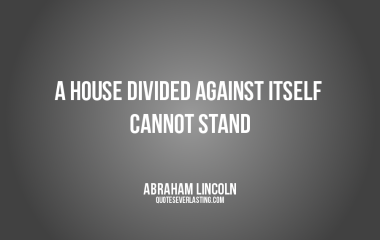
“Moshe said to his father-in-law, ‘We are now on our way to the place that G-d promised to us. Come with us and we will let you share the benefit of all good things that G-d has promised Israel’" (Bamidbar 10:29).
After spending close to a year at Sinai[1] the Jewish people are about to make their triumphant entry to the Land of Israel. Remarkably, Moshe asks Yitro, the former pagan priest, to accompany them on the journey into the Land. The Kli Yakar explains that Moshe's plea to his father-in-law was based on Yitro's ability to serve as a peacemaker. Even before the sending of the spies, the Jewish people were "experts" in murmurings, quarrelling and infighting. As an elder statesman, a man who was unafraid to embrace G-d and the Jewish people, Yitro would be the perfect calming influence the Jewish people needed.
Knowing how difficult it is to lead a quarrelsome people, Moshe pleaded with him to stay with them. True, the Jewish people can be difficult, he argued, but you are needed with us, Moshe explained. "If you go with us we will share with you whatever good G-d grants us" (Bamidbar 11:32) which the Kli Yakar interprets to mean that whatever good happens is because of you, Yitro. The merit of the many will be because of your leadership.
It is quite remarkable that Yitro is such a central figure in two of the most momentous events in Jewish history. Divine revelation at Sinai is preceded by Yitro's crucial advice on the proper administration of a judicial system, advice which Moshe readily heeded. One can even argue that setting up such a system was a pre-requisite to receiving the Torah[2]. Whereas at Sinai it was Yitro who offered his unsolicited advice, as the people prepare to enter the Land of Israel it is Moshe who approaches his father-in-law. It was as if without Yitro accompanying us serving as our "eyes"(Bamidbar 10:31) we would be unable to settle the Land. Unfortunately, this premonition of Moshe was correct.
While Yitro had rejected Moshe's initial request to stay, he is silent in the face of such a heartfelt plea. The Torah never actually tells us whether Moshe's continuing pleas were successful, and we have no reason to believe they were. We do not hear from Yitro again in the Torah and he apparently decided not to take up the challenge. Whether he felt that for all of Moshe's kind words his presence would not have made any difference, or that he was just too old and tired for such a task we do not know. What we do know is that without his leadership Jewish history took a major detour.
Immediately following this exchange between Moshe and Yitro the Torah places two inverted nuns, representing nefilah, falling down, as the entry into Israel was to be long delayed.
"The people began to complain, and it was evil in G-d's ears" (Bamidbar 11:1). What exactly were they complaining about? Nothing appears to have happened. Unlike other occasions when the Egyptians were chasing them or there was no food or water everything; here seems to be fine. The previous verses mention vayhi bnoah, "when the ark went forth, Moshe said, Arise, G-d and scatter your enemies" (Bamidbar 10:35). There was not even a poor excuse for such behaviour.
"The mixed multitude hitavu ta'avah, had strong cravings, and the Jewish people cried who will give us meat?" (Bamidbar 11:4). The double language hitavu ta'avah literally means they desired desire. Whatever they would have they would desire more. How sad when one can never be satisfied with their lot. No wonder Yitro did not want to be involved with the Jewish people. Even Moshe Rabbeinu, the great defender of the Jewish people is silent. Hearing the complaints he was despondent – and who can blame him? "Why are You treating me so badly? said Moshe to G-d. Don't You like me anymore? Why do You place such a burden on me?...If You are going to do this to me, just do me a favour and kill me" (Bamidbar 11:10…15).
A great nation needs great leaders. Yet great leaders need the people to give them the ability to lead. There must be a hitavu ta'avah, a strong desire for strong leadership. With constant complaining and the desire for more for the sake of more the journey to the promised land will be a long one. Let us do our outmost to shorten it.
[1] The Torah tells us the Jewish people arrived at Har Sinai “in the third month” which our Sages interpreted to mean what we call today Rosh Chodesh Sivan. The Torah explicitly tells us that the people left “the mountain of G-d” on the 20th of the second month, known today as Iyyar. Presumably the Torah did not tell us the exact date of arrival as it wanted to conceal the exact date of the giving of the Torah, an idea we discuss here.
[2] Presumably, this would be true only according to the view that Yitro’s arrival at the camp preceded Divine revelation at Sinai. That would however, be an incorrect presumption. According to the view that Yitro came after the giving of the Torah the fact that the Torah records it before Sinai indicates that justice must come before Torah, a most important realization of the teaching that derech eretz kadma laTorah, the ways of the world must precede Torah.



